BEVERLY McIVER: An Introspective Retrospective
Beverly McIver is an artist who lays her soul bare in her paintings. She allows the viewer to enter her lived experience as a Black, female artist growing up in the racially-charged 1960s and 70s in North Carolina.
McIver grew up in public housing projects in Greensboro, North Carolina, where some of the first anti-segregation sit-ins occured. Her mother was a single parent of three girls, one of whom, Renee, had a mental disability and needed additional support. McIver’s mother was a housekeeper in a home owned by a white family in an economically advantaged neighborhood of Greensboro. When desegregation in schooling finally rolled around, McIver was bused across town to a predominantly white school. For context, McIver had only white dolls to play with because Black dolls were not readily available, and she witnessed the KKK kill a man outside the window of her home. At that time, Beverly McIver felt socially accepted only when she joined the clown club at her school, and wore white makeup and a yellow, yarn wig.
Richard Powell, considered the foremost art historian on the subject of African American art today, writes, “In the 1980s McIver was performing as a white-faced, costumed clown at a party for preschoolers in Greensboro, North Carolina…when a little white girl…climbed into McIver’s lap and stroked the yellow strands of her mop wig…McIver’s sleeve separated from her gloves, and the clown’s true skin color showed through. The child pulled away in revulsion. ‘You’re Black,’ she screamed at McIver and then screamed at her tiny playmates: ‘The clown is Black. The clown is Black.’” McIver later admitted that “It triggered a lot of feelings and contradictions for me at that time. I really wasn’t aware that I was putting on clown makeup to escape being Black.”
In the late 1990s, McIver attended graduate school at Penn State where her advisors refused to award her MFA unless she spent an additional year on campus. Confounded, McIver sought the advice of fellow Black, female artist and eventual life-long mentor, Faith Ringgold. Ringgold informed McIver that such academic shenanigans were no surprise; that universities facing high levels of Black student attrition routinely tried to keep Black students on campus longer to ameliorate their data. Ringgold encouraged McIver to “paint her reality,” advice McIver adhered to, and that shaped her successful career as an artist.
Later in her career, McIver painted herself as a clown in whiteface make up with a yellow wig, like she had worn in clown club. She saw that hiding behind the white mask was “a way to escape the projects.” She stitched diary pages onto canvas to be shown with the clown paintings. Thus, she “painted her truth” just as Ringgold suggested. In Art in America, Raphael Rubinstein wrote that in painting her face first, and then creating an oil painting of herself with her face painted, McIver is

“painting an expressionistic self-portrait” that simultaneously brings “the language of expressionist, even hallucinatory, painting into a realist setting.” These early clown paintings and diary entries reveal McIver’s efforts to understand the use of social facades, and to explore her sense of self.
As McIver delved deeper into painting her own experience, she took on hardcore stereotypes. She painted herself in blackface as a clown—an association inextricably linked to Jim Crow, the blackfaced minstrel character devised by white actor Thomas Dartmouth Rice. She depicted herself as a black-faced clown in mundane stereotypical settings such as housekeeping, eating watermelon, dancing amidst dress forms created for white body types, and in relationship with her white, male partner. The paintings present uncomfortable associations with black-faced minstrels, mammy, and African American domestic workers taking care of white families. Her Loving in Black and White paintings that featured herself in blackface with her white, male partner, were removed from the Chandler Center for the Arts by gallery staff after briefly being shown in 1999 due to cultural taboos about interracial relationships.
As Richard Powell points out in his essay “Pigments and Personas,” McIver’s use of color—whiteface, blackface, brightly colored makeup, and overall high pitched hues—plays an equally important role in her subject matter. Powell cites the great color theorist Joseph Albers: “the physical properties of color are of less interest than the psychic effect. What color is, is of less concern than what it does. Painting is color acting. The act is to change character and behavior, mood and tempo.” McIver pulls no punches, using her body as the stage for color to act upon, painting both her colored self and her self, colored, onto canvas in order to double the impact of her lived experience.
Starting in 2008, when Obama became president, McIver began her Dear God series, a body of work that continues, and which McIver adds to when she wants to express deep gratitude or fear.
In 2015, McIver’s friend, Kim Boganey, gifted McIver her first Black doll. McIver named the doll Gracie, and began painting herself with Gracie, notably without any makeup at all. McIver remarked that Gracie reminded her of herself—cute and innocent. Rather than needing to hide behind a mask, McIver now chose to reveal herself as she is.
During the pandemic, McIver made deeply introspective self portraits that feature long, black strands. Sometimes the strands whip around her head as if she was moving; other times they become a web that entangles her beyond escape. McIver commented that white viewers tend to perceive these strands as long dreadlocks, while Black people see them immediately as ropes. This insight alone sheds light on different lived realities. Not only is McIver a magnificent, talented painter, but also is a sage whose willingness to make herself vulnerable enlightens us all.
Curator Kim Boganey’s retrospective, Beverly McIver: Full Circle, is touring nationally. Our exhibition, Beverly McIver: An Introspective Retrospective, specifically asks for reflection from viewers, and to act to rectify the context in which McIver paints. This exhibition is presented in two parts: one here in Santa Fe at CONTAINER and at Turner Carroll Gallery, and the other at the Contemporary Art Museum Raleigh.
You Think I’m Pretty with My Nappy Headed Self?, 1994 oil on canvas
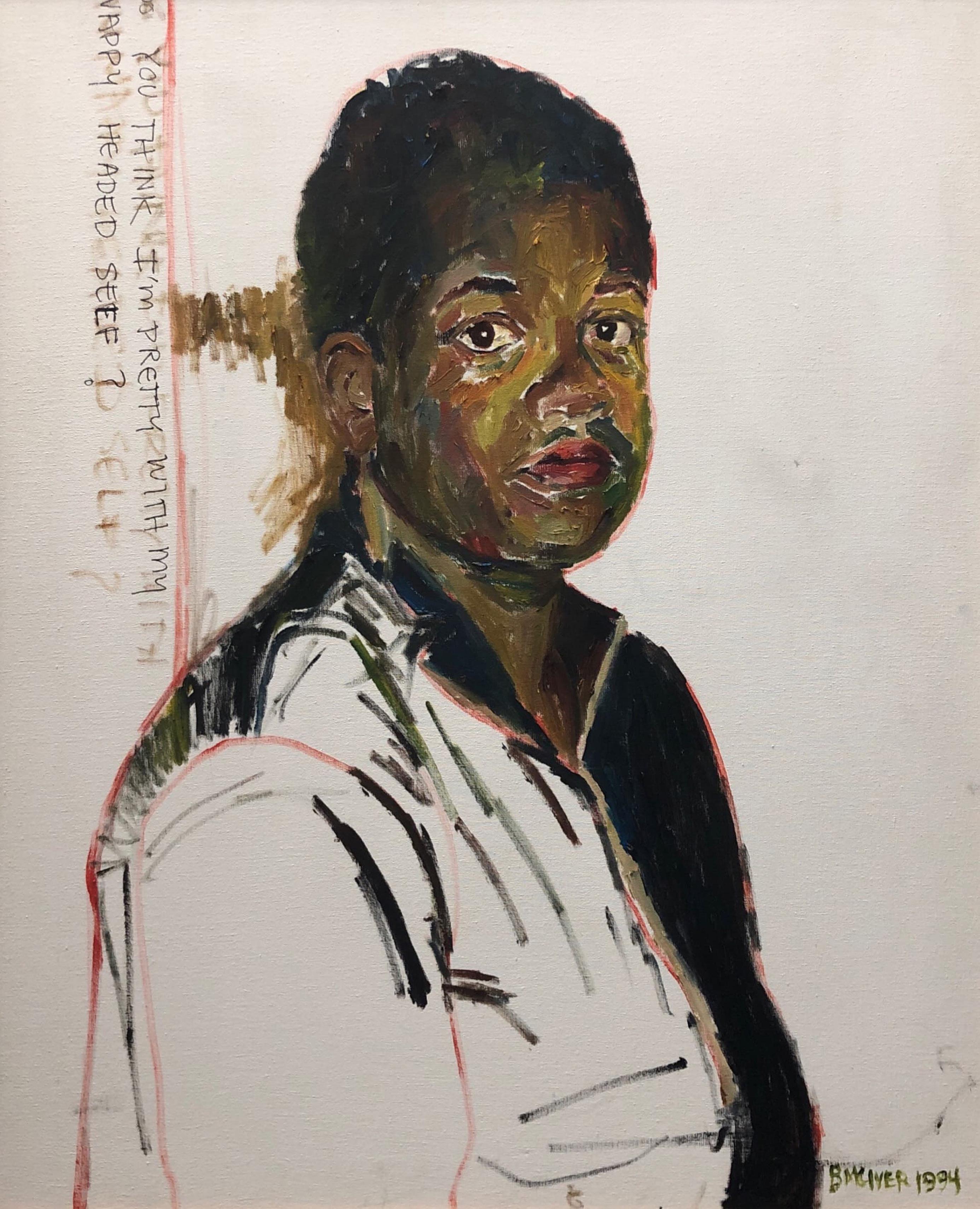
3

4
When I Was White, 1994 oil on canvas

5
Untitled White Face Painting, 1995 oil on canvas

6
White Glove, Black Hand, 1995 oil on canvas
White Face 2 Clowns, 1996 sewn thread and oil on canvas, Clown Portraits Diary, 1996 ink and sewn thread on canvas


7

8
Peaceful, 1994 oil on canvas

9
Fixing My Wig, 1994 oil on canvas

 10 Collaged Clown Black Face, 1996 oil and sewn thread on canvas, Black Self Diary, Faith R. and Maya, Family, 1996 ink, paper, sewn onto canvas
10 Collaged Clown Black Face, 1996 oil and sewn thread on canvas, Black Self Diary, Faith R. and Maya, Family, 1996 ink, paper, sewn onto canvas

11
My Hair, 1996 oil on canvas

12
Me and Renee Close Up #3, 1998 oil on canvas

13
Self-Portrait Panel, 1996 ink and sewn thread on canvas

14
The Scream, 1997 oil on canvas
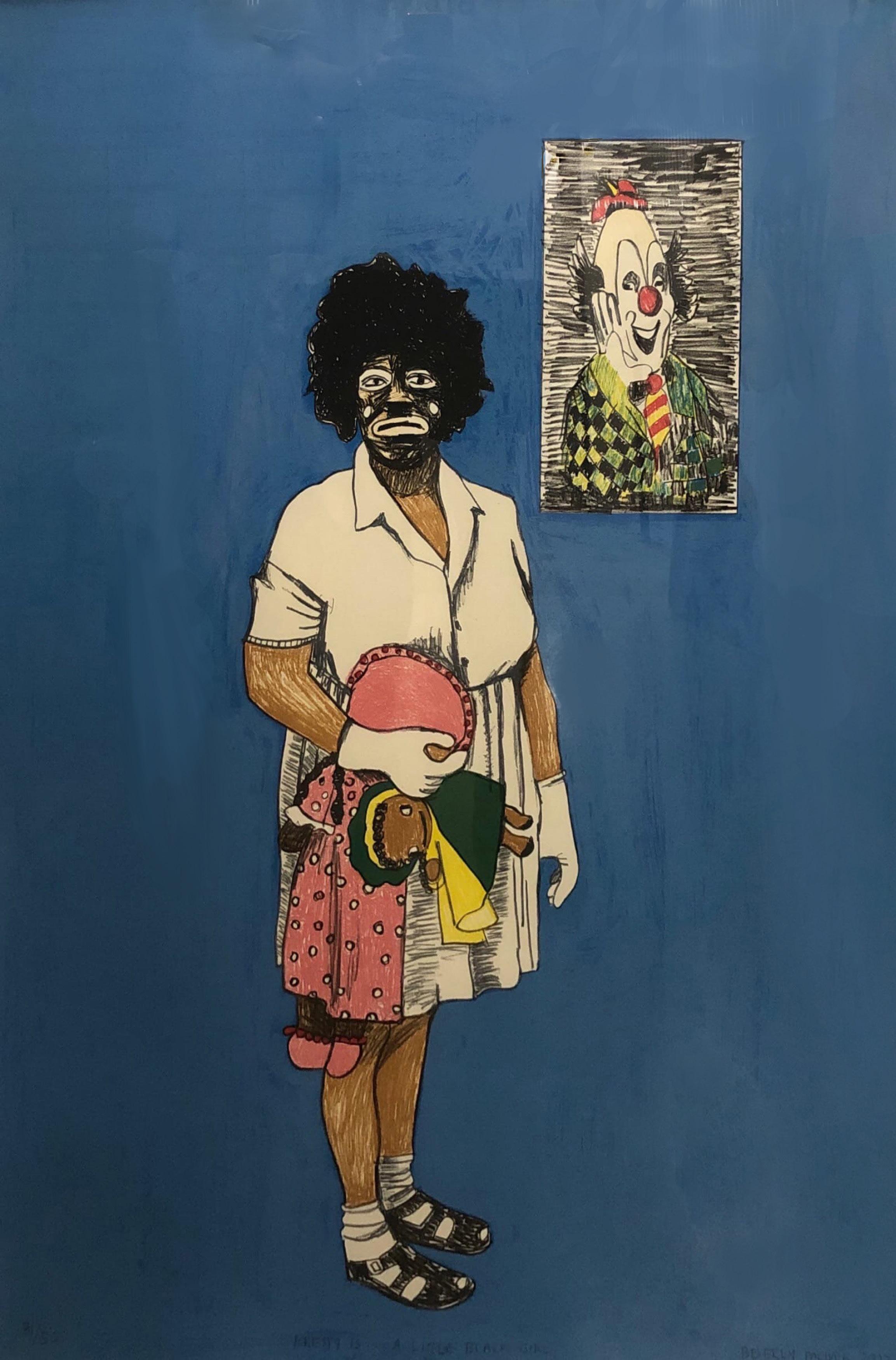
Little Black Girl, 1996 seven-color lithograph edition of 50 15

16
Me and Dan Eating Watermelon, 1996 oil on canvas

17
From Loving in Black and White, 1997 oil on canvas

18
Watermelon Still Life, 1998 oil on canvas

19
Renny, 1999 oil on canvas

20
Dancing For My Man 2, 1998 oil on canvas

21
Dancing For My Man 1, 1998 oil on canvas

22
Dancing With My Man, 1998 oil on canvas

23
Black Face Blue Dress, 2002 oil on canvas

24
Untitled, 1994 oil on canvas

25
Chelsea Girl, 2004 oil on canvas

26
Radcliff Girl, 2004 oil on canvas

27
Carousel Dream 1, 2000 oil on canvas

Dear God, 2009 oil on canvas 28
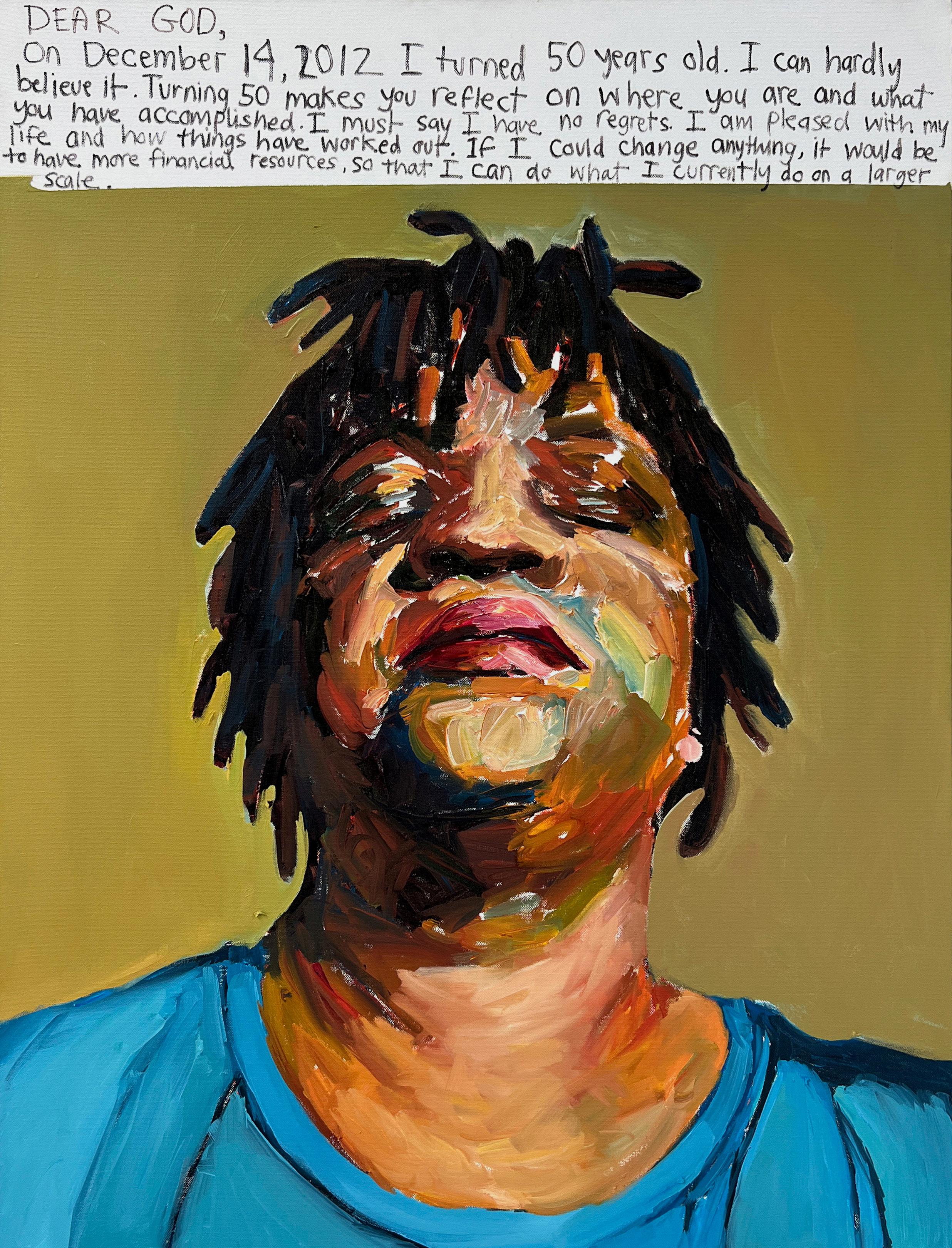
29
Dear God 50th Birthday, 2013 oil on canvas
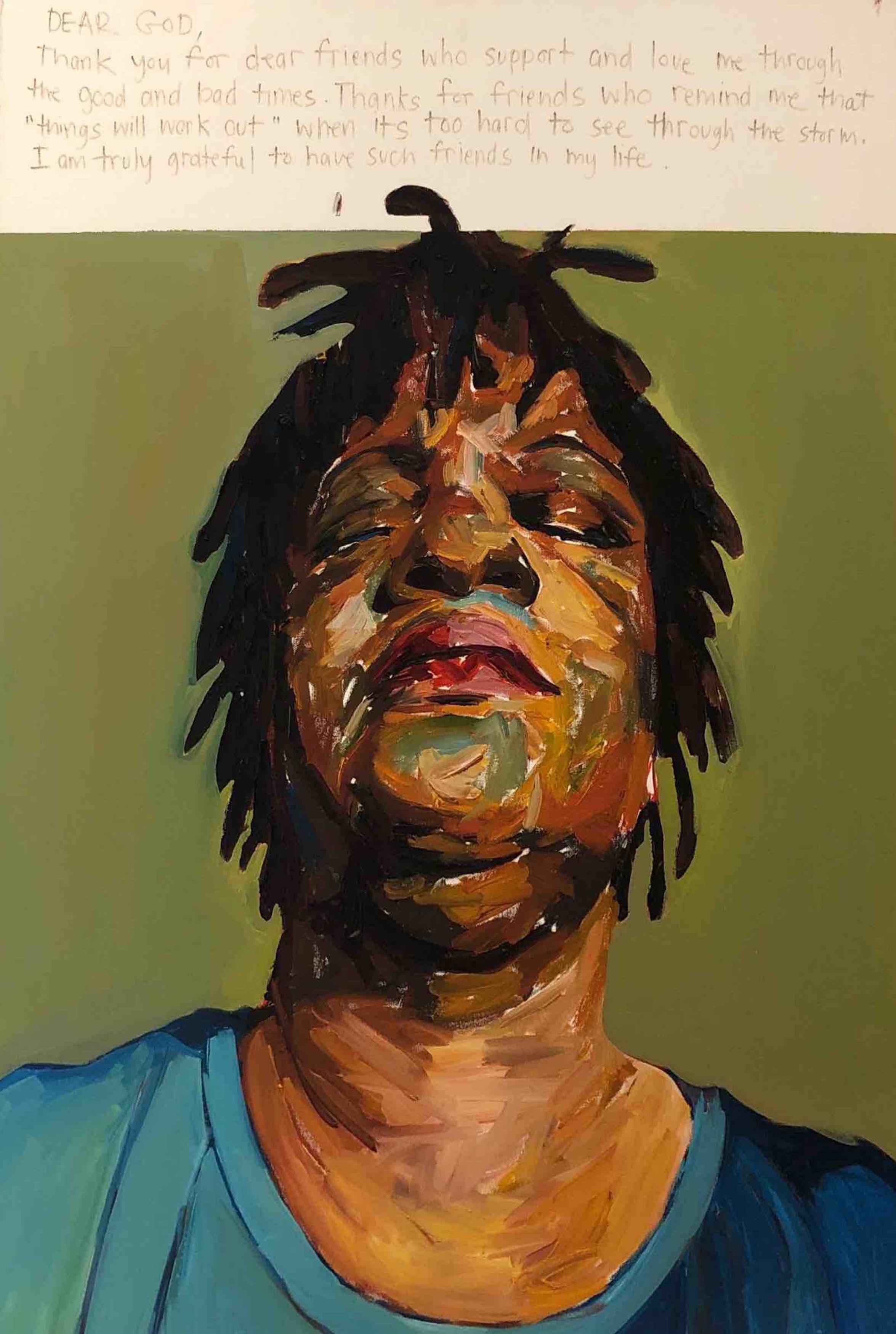
30
(Dear God) Friends, 2013 oil on canvas

31
Healing, 2015 collage and oil on canvas

32
Gracie II, 2016 oil on canvas

33
Gracie with Collaged Background, 2016 oil and mixed media mounted to panel

34
Toy Rabbit, 2015 oil on canvas
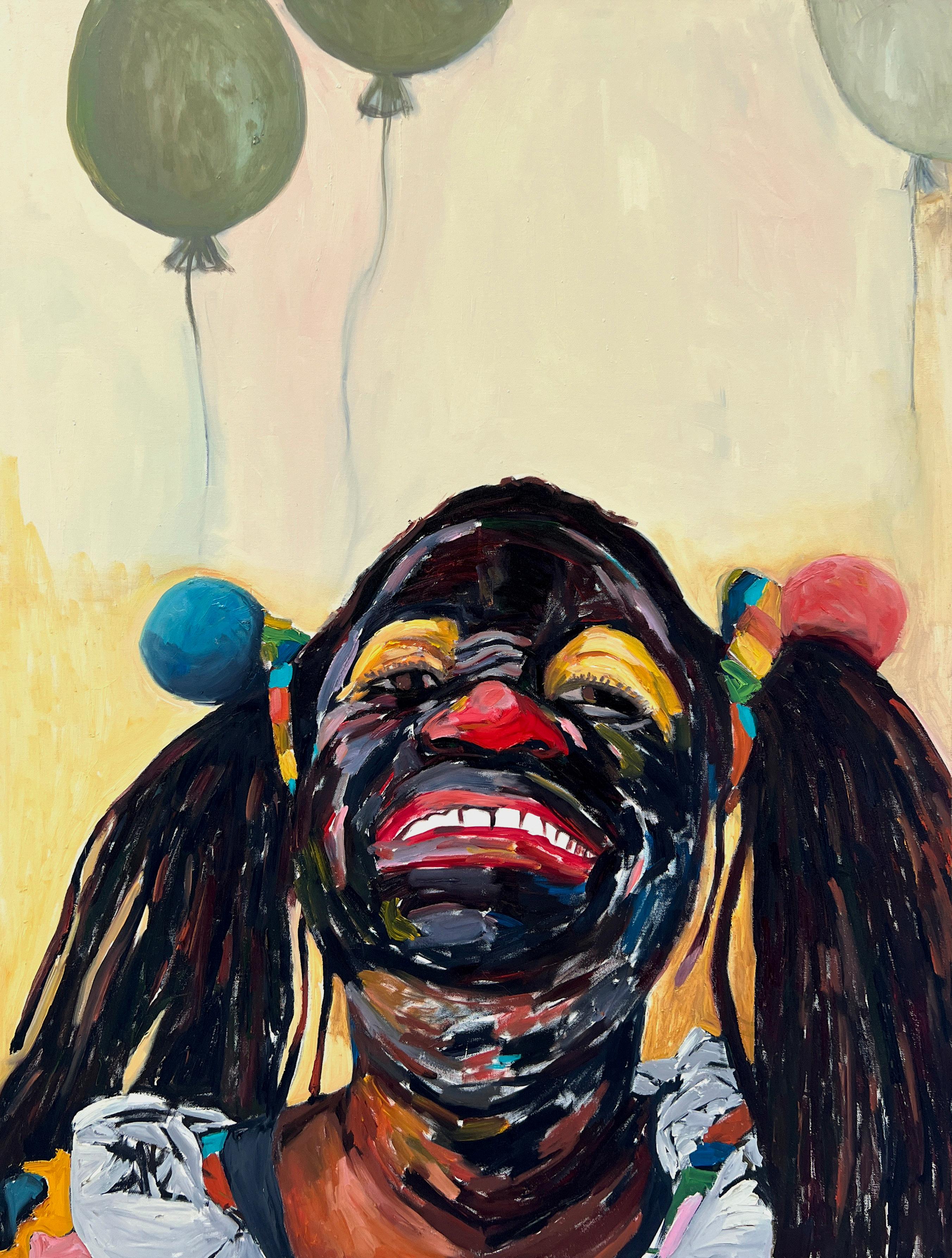
35
Clown with Balloons, 2018 oil on canvas
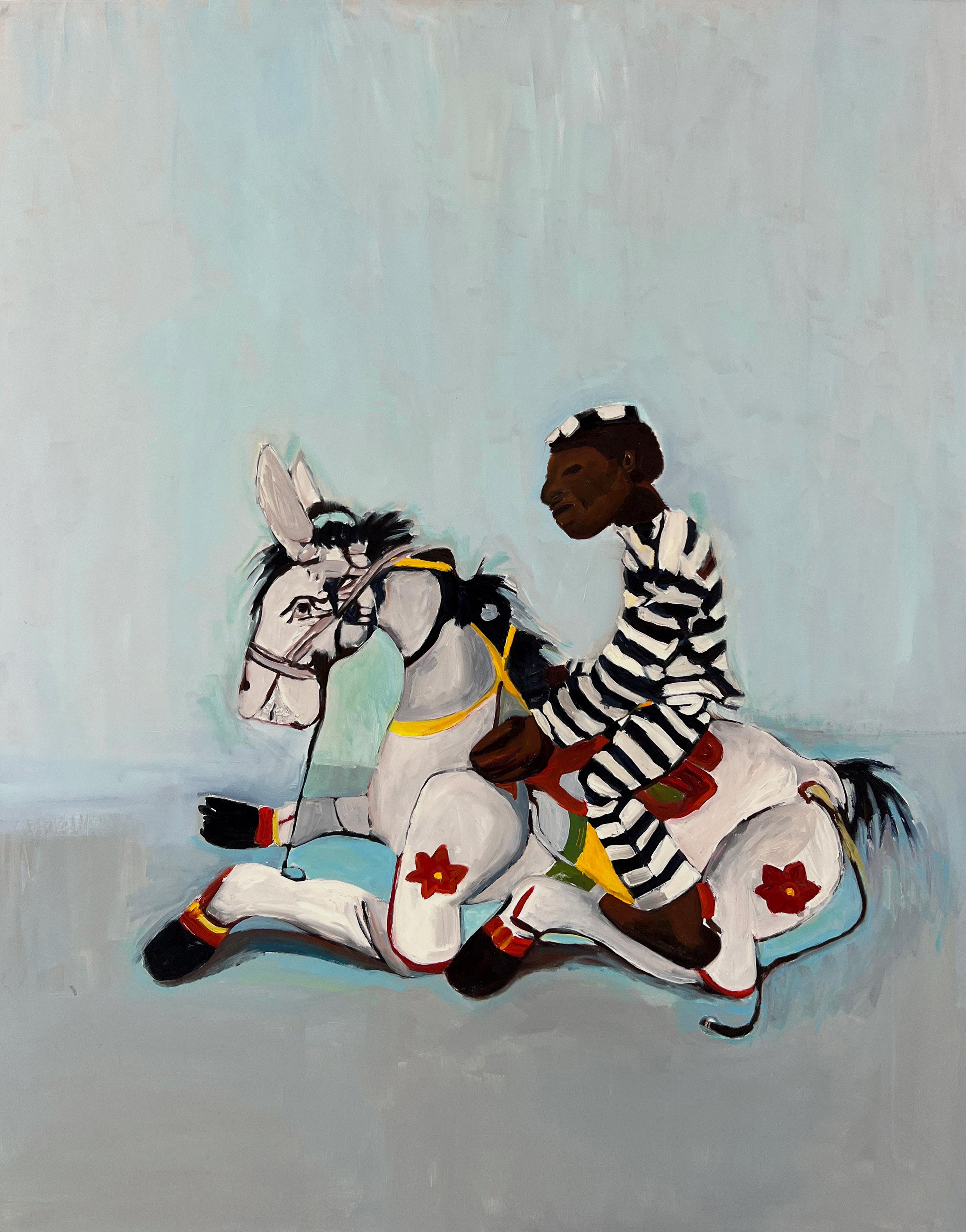
36
Toy Horse and Rider, 2018 oil on canvas
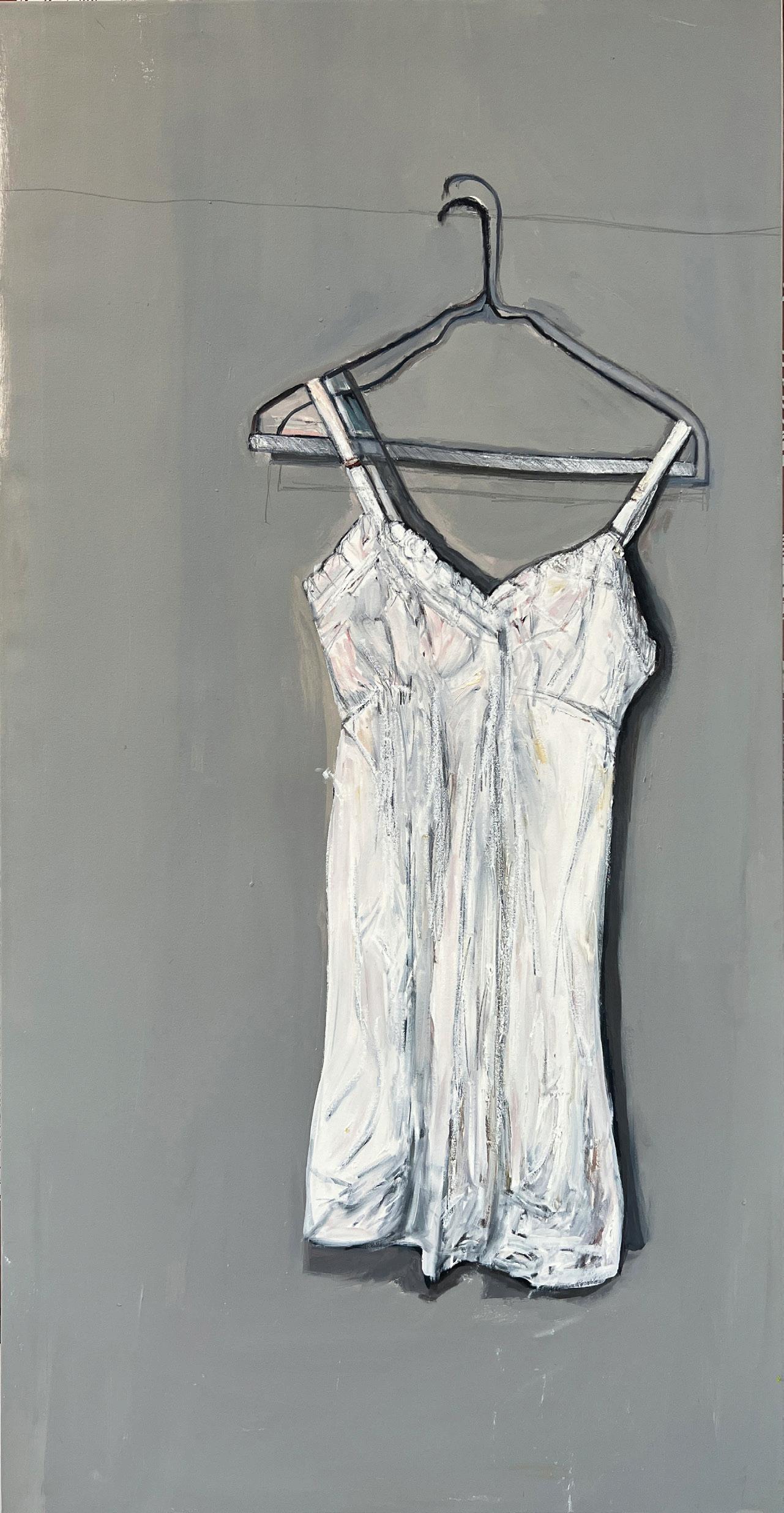
37
Chemise, 2018 oil on canvas
 38 Scream Out Loud, 2019 oil on canvas
38 Scream Out Loud, 2019 oil on canvas

Untitled Ropes,
39
2020 oil on canvas
 40 Untitled Ropes and Locks, 2020 oil on canvas
40 Untitled Ropes and Locks, 2020 oil on canvas

Covid Haircut, 2020 oil on canvas 41

42
Remembering My Mom, 2004 oil on canvas

Up Close, 2010 oil on canvas 43

44
Mourning My Dad, 2022 oil on canvas
Selected Collections
Arizona State University Art Museum, Tempe, AZ
Ashville Museum of Art, Ashville, NC
Baltimore Museum of Art, Baltimore, MD
Cameron Art Museum, Wilmington, NC
Crocker Art Museum, Sacramento, CA
Duke University, Durham, NC
Glaxo Pharmaceutical Company, Morrisville, NC
High Museum of Art, Atlanta, GA
Mesa Contemporary Arts Museum, Mesa, AZ
Mint Museum, Charlotte, NC
National Portrait Gallery, Smithsonian Institute, Washington, DC
Nasher Art Museum, Duke University, Durham, NC
Nelson Fine Art Center, Arizona State University, Tempe, AZ
North Carolina Museum of Art, Raleigh, NC
Philadelphia Academy of Art, Philadelphia, PA
Scottsdale Museum of Contemporary Art, Scottsdale, AZ
Weatherspoon Art Museum, Greensboro, NC
21c Museum Hotels, United States
Selected Awards
2017 Joseph H. Hazen Rome Prize, American Academy, Rome, Italy
2017 Lifetime Achievement Award, Anyone Can Fly Foundation, Englewood, NJ
2017 Purchase Award, Hassam, Spiecher, Betts and Symons Fund, American Academy of Arts and Letters, New York, NY
2012 The Marie Walsh Sharpe Foundation Studio Program, one-year free studio space, Brooklyn, NY
2010 Distinguished Alumni Fellow, Pennsylvania State University, State College, PA
2004 Artist of the Year Award, Scottsdale Cultural Council, Scottsdale, AZ
2003 Louis Comfort Tiffany Award, New York, NY
2003 Distinguished Alumni Award, Penn State University, State College, PA
2003 Marie Walsh Sharpe Foundation, Studio Space for one year, Tribeca, New York, NY
2002 Radcliffe Fellow, Radcliffe Institute for Advanced Study, Harvard University, Cambridge, MA
2002 Creative Capital, Project Grant, New York, NY
2001 John Simon Guggenheim Fellowship, New York, NY
2000 Anonymous Was a Woman Grant, New York, NY
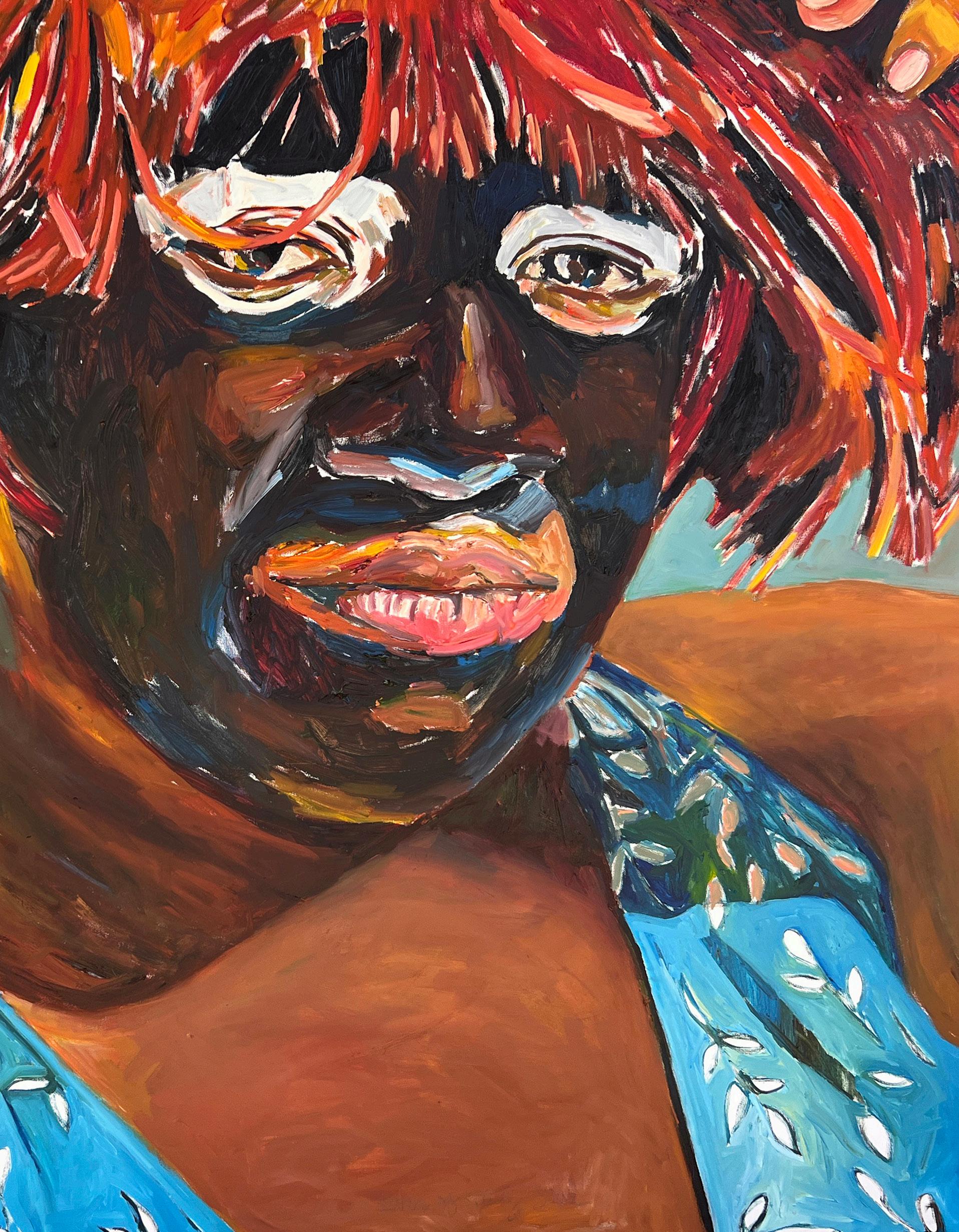


turnercarrollgallery.com | 725 Canyon Road | Santa Fe, NM 87501 | 505.986.9800
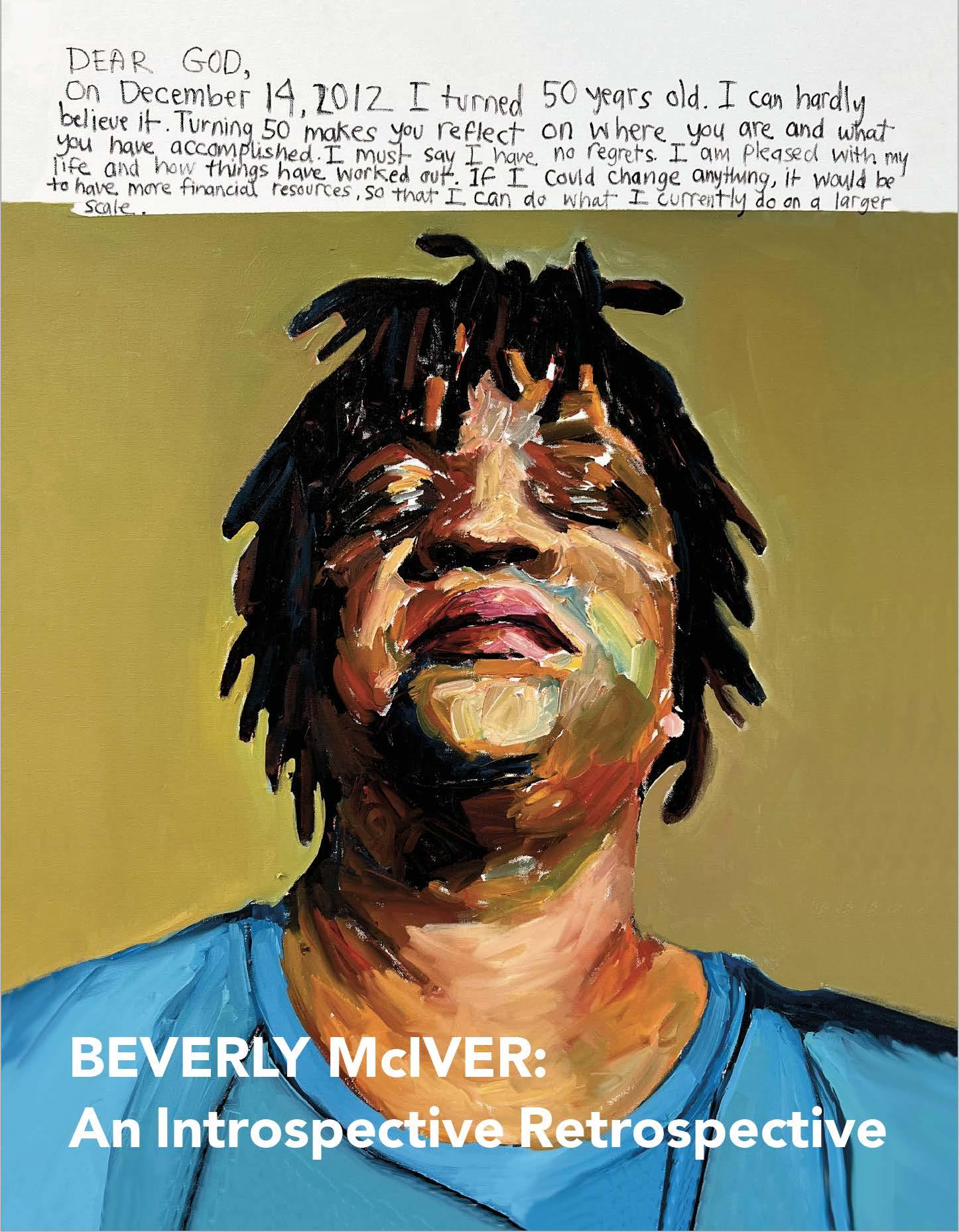













 10 Collaged Clown Black Face, 1996 oil and sewn thread on canvas, Black Self Diary, Faith R. and Maya, Family, 1996 ink, paper, sewn onto canvas
10 Collaged Clown Black Face, 1996 oil and sewn thread on canvas, Black Self Diary, Faith R. and Maya, Family, 1996 ink, paper, sewn onto canvas



























 38 Scream Out Loud, 2019 oil on canvas
38 Scream Out Loud, 2019 oil on canvas

 40 Untitled Ropes and Locks, 2020 oil on canvas
40 Untitled Ropes and Locks, 2020 oil on canvas






